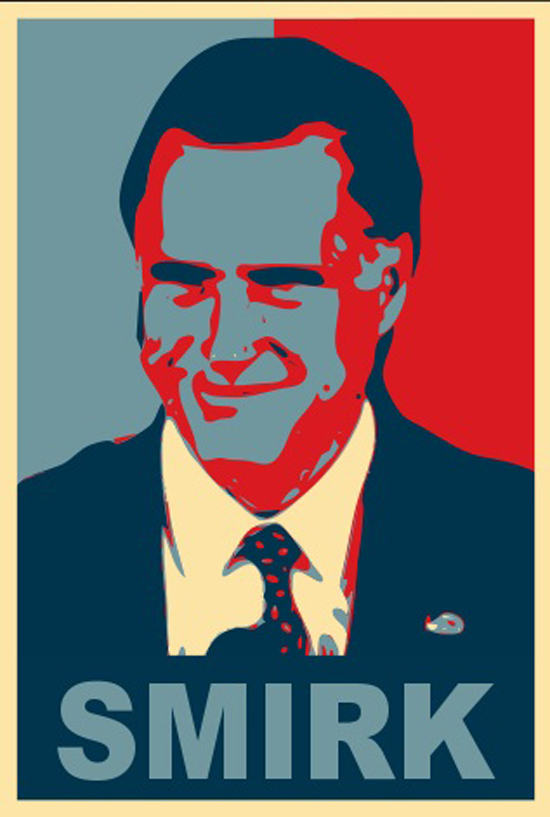
by Moby
Ok, I think I figured it out.
Mitt Romney is disdainful of anyone receiving government assistance because:
1. He comes from a rich and privileged background, so he’s never needed or received government assistance.
And…
2. He comes from a rich and privileged background, so he’s never known anyone who’s needed or received government assistance.
Almost everyone I know has received some sort of government assistance, whether it’s student loans or small business loans or Medicare or Medicaid, and almost everyone I know now pays taxes and contributes to society.
I’ll use myself as an example.
I was the only child of a single working mom. We struggled a lot economically, and there were times when we lived off of food stamps and social security and government assistance. And then when I went to the University of Connecticut and SUNY Purchase I received Pell Grants and student loans.
So, according to Mitt Romney, I was part of the 47% “who are dependent upon government…who pay no income tax.” [As heard in a video obtained by Mother Jones] Mitt Romney then went on to say: “My job is not to worry about those people. I’ll never convince them they should take personal responsibility and care for their lives.”
In the last 20 years I have either personally or professionally paid millions of dollars in income taxes to the state, local, and federal government. I have employed hundreds of people, who have in turn paid income taxes and in many cases have gone on to start their own businesses.
So I think it’s safe to say that the government assistance my mother and I received was money well spent. I was able to go to decent schools and get a decent education, all thanks to ‘government assistance.’ My mother and I were able to eat, all thanks to ‘government assistance.’ I was able to see doctors, all thanks to ‘government assistance.’ We were able to pay our rent at times thanks to ‘government assistance.’
Not to mention the roads, clean water, streetlights, police departments, fire departments, clean air, libraries, public transit, electricity, etc., that all came from the government and enabled my mother and I to stay alive and live good, educated, safe, and healthy lives.
Mitt Romney comes from extreme wealth. He has never once needed financial assistance from the government, as his family had millions and millions of dollars. But there are millions and millions and millions of Americans like me who didn’t come from extreme wealth and who needed help with education and food and healthcare and shelter, but who have gone on to start businesses and pay taxes.
We are not an ‘entitled’ class, we are not ‘dependent upon the federal government’ and we do not consider ourselves ‘victims.’ We are the hundreds of millions of Americans who had the misfortune of not being born to millionaire parents.
So I understand why Mitt Romney is disdainful of government assistance, as his parents paid for everything and he never needed help being fed or educated or looked after by doctors. I understand that in Mitt Romney’s entire life he’s never known anyone who’s needed student loans. He’s never known anyone who needed food stamps to keep their family fed. He’s never known anyone who’s had to spend hours in a health clinic just to get basic medical care. He’s never known anyone who couldn’t pay the rent.
I understand that Mitt Romney grew up with phenomenal wealth and privilege
but I don’t understand why that leads him to contemptuously dismiss anyone (like my mother and I) who have, at times, needed government help with food and education and shelter and health care.
Mitt Romney is a product of wealth and privilege. That does not give him the right to loathe and dismiss the rest of us who are not the product of wealth and privilege.
Oh, for some reason I was thinking of ‘Common People’ by Pulp when I heard Romney’s quotes.
– Moby, September 19, 2012
“But still you’ll never get it right,
Cos when you’re laid in bed at night,
Watching roaches climb the wall,
If you call your Dad he could stop it all.You’ll never live like common people,
You’ll never do what common people do,
You’ll never fail like common people,
You’ll never watch your life slide out of view.”– “Common People” by Pulp
Related Posts:
In Defense of Discretionary Spending









